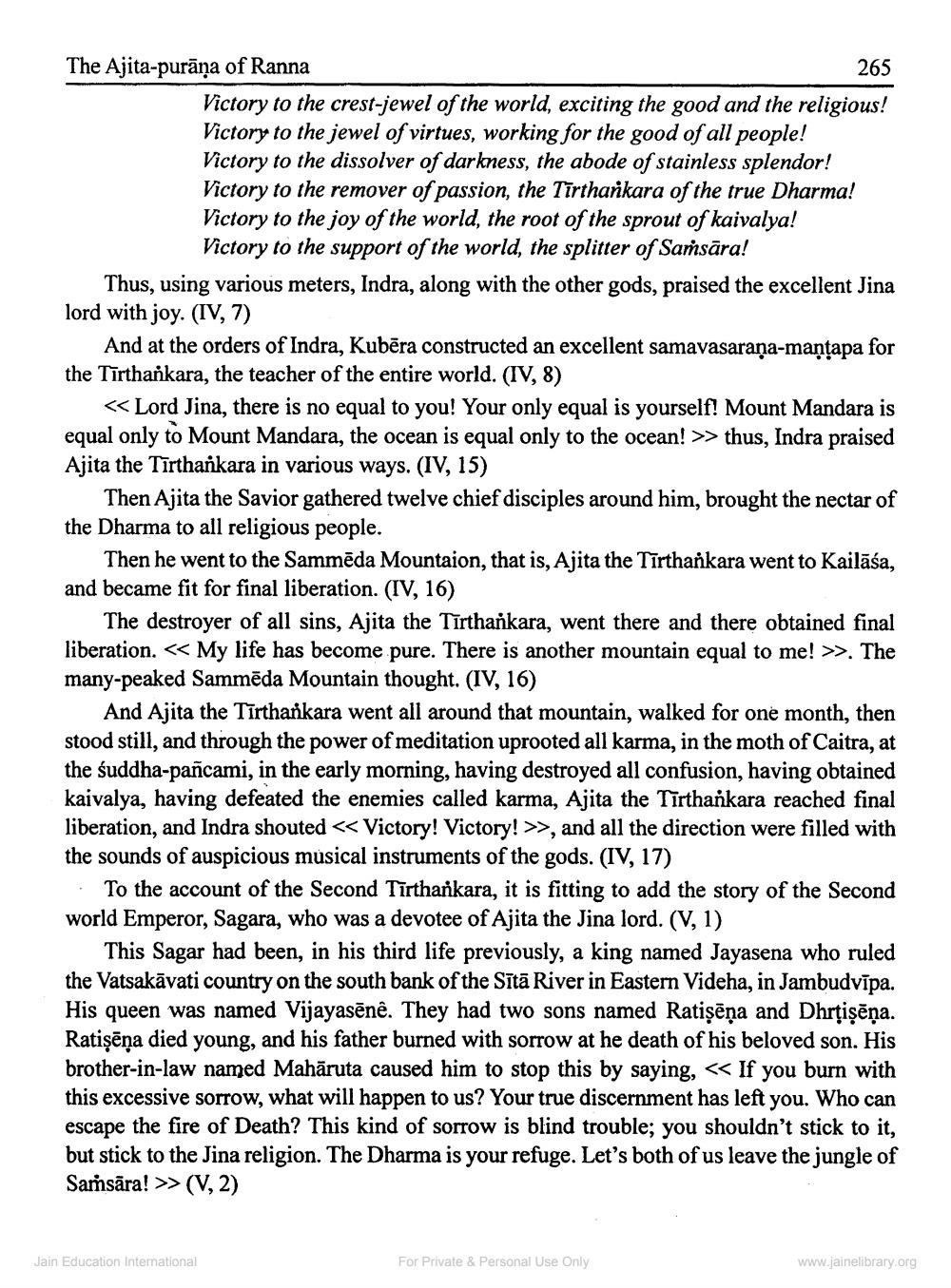________________
265
The Ajita-purāna of Ranna
Victory to the crest-jewel of the world, exciting the good and the religious! Victory to the jewel of virtues, working for the good of all people! Victory to the dissolver of darkness, the abode of stainless splendor! Victory to the remover of passion, the Tīrtharkara of the true Dharma! Victory to the joy of the world, the root of the sprout of kaivalya!
Victory to the support of the world, the splitter of Saṁsāra! Thus, using various meters, Indra, along with the other gods, praised the excellent Jina lord with joy. (IV, 7)
And at the orders of Indra, Kubēra constructed an excellent samavasarana-mantapa for the Tīrthankara, the teacher of the entire world. (IV, 8)
« Lord Jina, there is no equal to you! Your only equal is yourself! Mount Mandara is equal only to Mount Mandara, the ocean is equal only to the ocean! >> thus, Indra praised Ajita the Tīrthankara in various ways. (IV, 15)
Then Ajita the Savior gathered twelve chief disciples around him, brought the nectar of the Dharma to all religious people.
Then he went to the Sammēda Mountaion, that is, Ajita the Tīrthankara went to Kailasa, and became fit for final liberation. (IV, 16)
The destroyer of all sins, Ajita the Tīrthankara, went there and there obtained final liberation. << My life has become pure. There is another mountain equal to me! >>. The many-peaked Sammēda Mountain thought. (IV, 16)
And Ajita the Tīrthankara went all around that mountain, walked for one month, then stood still, and through the power of meditation uprooted all karma, in the moth of Caitra, at the suddha-pañcami, in the early morning, having destroyed all confusion, having obtained
lya, having defeated the enemies called karma, Ajita the Tirthankara reached final liberation, and Indra shouted << Victory! Victory! >>, and all the direction were filled with the sounds of auspicious musical instruments of the gods. (IV, 17)
• To the account of the Second Tirthankara, it is fitting to add the story of the Second world Emperor, Sagara, who was a devotee of Ajita the Jina lord. (V, 1)
This Sagar had been, in his third life previously, a king named Jayasena who ruled the Vatsakāvati country on the south bank of the Sītā River in Eastern Videha, in Jambudvīpa. His queen was named Vijayasēnê. They had two sons named Ratişēņa and Dhrțișēņa. Ratisēna died young, and his father burned with sorrow at he death of his beloved son. His brother-in-law named Mahāruta caused him to stop this by saying, << If you burn with this excessive sorrow, what will happen to us? Your true discernment has left you. Who can escape the fire of Death? This kind of sorrow is blind trouble; you shouldn't stick to it, but stick to the Jina religion. The Dharma is your refuge. Let's both of us leave the jungle of Samsāra! >>(V, 2)
Jain Education International
For Private & Personal Use Only
www.jainelibrary.org




